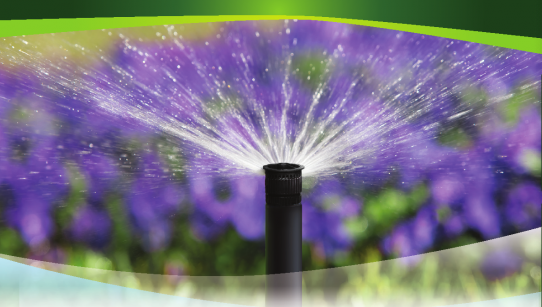The Complete Guide to Winterizing Your Heat Pump
Whether you're a seasoned pool owner or a first-timer, learn how to winterize your heat pump and get it ready for the next swimming season.
As a pool owner, you know how important it is to keep your pool equipment in top condition, and that includes properly winterizing it for the off-season. One essential piece of equipment that requires special attention during winterization is the heat pump. In this article, we'll discuss the importance of winterizing your pool heat pump, the steps involved in the process, and the benefits of doing so for the lifespan and efficiency of your equipment. So, whether you're a seasoned pool owner or a newcomer to the world of pool maintenance, read on to learn how to properly winterize your pool heat pump and ensure it's ready for the next swimming season.
Why should you winterize your heat pump?
During the winter months, ambient
temperatures can drop significantly, which can have a negative impact on the
performance of pool heat pumps. As the temperature drops, the heat pump's
compressor has to work harder to extract heat from the surrounding air, which
can cause it to become less efficient and potentially lead to damage.
To avoid damage and maintain
efficiency, you need to winterize your heat pump. This process involves
draining and cleaning the unit, disconnecting and storing outdoor hoses or
pipes, and covering the unit to protect it from the elements.
Leaving water inside your heat pump
during the winter months can cause a variety of problems. When water freezes,
it expands and creates pressure that can damage the internal components of the
heat pump. The evaporator and condenser coils and the heat exchanger, in
particular, are susceptible to damage from frozen water. Water left in the heat
pump can also cause corrosion and rust to form, leading to further damage over
time. By taking this simple step, you can avoid costly repairs or replacements
in the future and save money in the long run.
When to winterize your heat pump
When it comes to winterizing your heat pump, timing is
crucial and depends on your location and climate. Typically, it's recommended
to begin the winterization process when temperatures consistently drop below 8 °C.
To ensure your heat pump is protected, it's essential to stay aware of the weather forecast and plan accordingly. If temperatures are expected to drop suddenly, it's best to winterize your heat pump sooner rather than later to avoid any damage. Waiting too long to winterize can be risky as freezing temperatures can occur unexpectedly and cause harm to your heat pump and other pool equipment.
Steps to winterize your heat pump for optimal protection
Winterizing your heat pump is an important task and there are
several important steps to follow.
Firstly, it's crucial to turn off the power and water supply
to the heat pump. This will help prevent any accidental damage or electrical
hazards during the winter months. Next, you'll want to drain any remaining water
from the heat pump and pipes. Water left inside can freeze and cause damage to
the internal components, so it's important to ensure everything is completely
drained before the cold weather sets in.
Once the water has been drained, it's a good idea to clean the heat pump and remove any debris or buildup that has accumulated during the swimming season. After cleaning, it's recommended to cover the heat pump with a specialized cover that's designed to protect it from the elements during the winter months. This will help further prevent any damage from occurring and keep your heat pump in good condition. Lastly, you may also want to consider using a pool cover or solar blanket to further protect your pool from the cold weather and reduce heat loss. This can also help save on energy costs and keep your pool cleaner during the off-season.
Tips for storing heat pumps during winter
If you want to keep your heat pump in good condition during
the winter months, there are a few important things to keep in mind when it
comes to storing it. First, you'll want to choose a suitable storage location
that's protected from the elements and offers sufficient ventilation. It's also
important to protect the heat pump from moisture and pests by using covers or
sealants as needed.
To ensure the heat pump stays in good condition, it's a good
idea to perform periodic maintenance checks throughout the winter. This can
include checking for any signs of damage, inspecting the filters and other
components, and performing any necessary cleaning or repairs.
If you're planning on storing the heat pump for an extended period, then you must drain the unit completely, remove any batteries or other components, and store it in a dry and secure location.
The benefits of proper winterization
Winterizing your heat pump can help
keep it in the best shape and save you money in the long run! Here are some of
the benefits:
- Protecting your heat pump from damage: By draining and disconnecting your heat pump and covering it properly, you can protect it from the elements and prevent damage from freezing temperatures.
- Extending the lifespan of your heat pump: Proper winterization can help your heat pump last longer by preventing corrosion and other forms of damage that can wear down the unit over time.
- Saving money on repairs: By avoiding costly repairs due to frozen or damaged components, you can save money in the long run.
- Ensuring optimal performance: A well-maintained heat pump can perform more efficiently, providing you with more cost-effective heating for your pool when it's time to open it back up for swimming season.
- Reducing the risk of accidents: A properly winterized heat pump reduces the risk of accidents, such as slips or falls, by preventing ice and snow from accumulating around the unit.
- Maintaining the warranty: Many heat pump manufacturers require proper winterization in order to maintain the warranty on the unit. Failing to winterize your heat pump could void the warranty and leave you responsible for any repairs or replacements.
Winterizing your pool heat pump is
an essential step to protect it from damage and ensure optimal performance for
years to come. By following the necessary steps, including draining water,
cleaning, covering, and storing in a suitable location, you can ensure that
your pool heat pump is ready to use when the swimming season begins again.











No comments yet